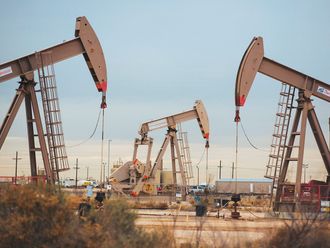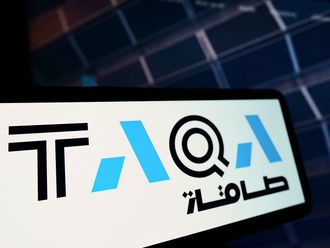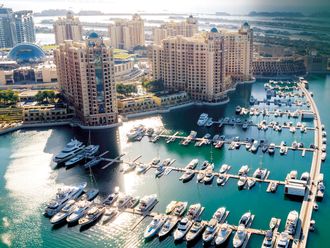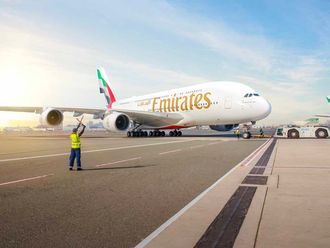India took a key step towards the liberalisation of its oil and gas sector yesterday when the government announced plans to issue bonds to petroleum companies next April.
Oil Minister Ram Naik said the move was aimed at clearing a $2.51-billion deficit on the account of the oil pool, a complex cross subsidy scheme under which high petrol prices compensate firms for selling kerosene and cooking gas below cost.
"We have decided to issue seven-year bonds at an interest rate which will be the same as the prevailing government security rate," Ram Naik told reporters after a two-hour meeting with Finance Minister Yashwant Sinha.
"The bonds will be issued to clear the oil pool account deficit which is estimated to be about Rs120 billion," he said.
The account runs a deficit if retail prices are not increased when international crude prices rise. Under the liberalisation which is due to begin in April, the industry will move towards market-determined prices.
The account's deficit is the amount owed to oil marketing firms to give them a 12 per cent return on capital employed. The dues from the oil pool account are shown as receivables in their balance sheets.
State-run oil firms have strongly opposed the issue of bonds and had sought higher administered prices to clear the deficit.
To finance oil pool dues, oil companies have been raising short-term loans from the market because these dues are treated as short-term assets.
Conversion of pool dues into bonds, which are long-term assets, would compel oil firms to raise long-term resources, officials said.
The difference in interest rates for short- and long-term borrowing would cause a loss of Rs700 million to Indian Oil Corp, the country's largest refiner.
But Naik said the government, which controls the state-run firms, was acting in the interest of the refiners. "We are taking care of them."
Naik added the government had also decided to remove subsidies on kerosene and liquefied petroleum gas in five years. Both have a subsidy of about 40 per cent.
Naik said the subsidies had to be gradually removed to protect consumers from a steep rise in prices.
He said the government had also finalised a proposal to appoint a regulator after the oil and gas sector was liberalised in April.
Naik also said India will build a strategic reserve of crude oil and products.
"We will consult the defence and home (interior) ministries and set up the strategic reserve for crude oil and products," he said.
Naik did not give more details.
India has been contemplating strategic reserves since 1995, when petroleum product prices rose steeply. The plan was again considered after the September 11 attacks on the United States.
The 1995 proposal sought to build tanks to stock 12.55 million tonnes of products, enough at that time to keep refineries in operation for 45 days.
It also proposed facilities to store 4.25 million tonnes of imported crude to provide for 15 days of supply.
State-run refiners are also in the process of doubling product tankage capacity to 0.87 million kilolitres from 0.43 kilolitres.
Meanwhile, state-run Gas Authority of India Ltd will invest Rs30 billion ($625 million) to lay a pipeline to feed imported liquefied natural gas (LNG) into its existing network, a company statement said yesterday.
The company will lay a 610-km gas pipeline from Dahej on the west coast to Vijaipur in central India. The project will cost Rs29.36 billion.
India plans bonds to clear oil pool deficit
India took a key step towards the liberalisation of its oil and gas sector yesterday when the government announced plans to issue bonds to petroleum companies next April.












